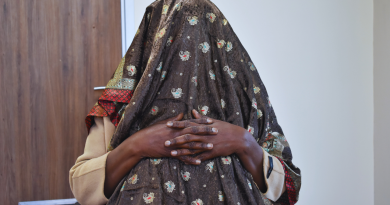Voices from the Frontline: COP28 Puts Health at the Core of Climate Action
By Chemtai Kirui | phillykirui@gmail.com
“As a doctor, I’m deeply concerned about how climate change is impacting my patients. It is unhealthy for my children and their future,” said Dr. Mary Rice, a pulmonary critical care physician and an Associate Professor of Medicine at Harvard Medical School.
Speaking to Kass Media on the 28th year of climate change negotiations, where 70,000 participants from around the world are attending the highly anticipated United Nations Conference of Parties (COP28) summit in the UAE, Dr. Rice who is also a research scientist in the field of air pollution and climate change interaction, highlighted the direct impact of climate change on human health.
Specifically pointing to air pollution resulting from the burning of fossil fuels, Dr. Rice said: “Whether it’s for energy, transportation, or emissions of air pollutants, these activities contribute to health problems, particularly affecting the lungs and cardiovascular system.”
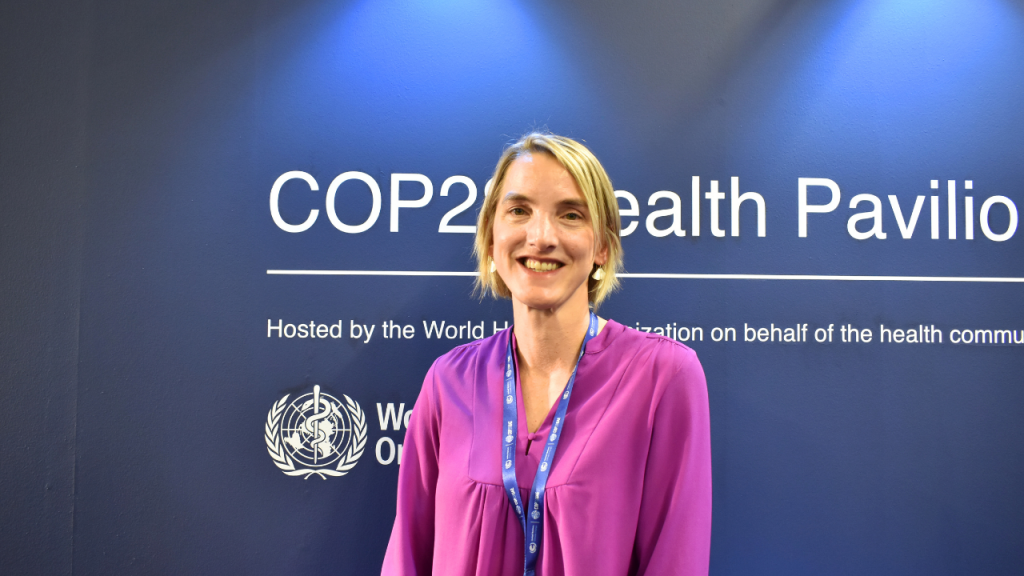
“In my research, we found that children who reside in close proximity to busy roads in Boston are three times more likely to develop asthma. It’s noteworthy that Boston is considered a region with relatively clean air compared to many parts of the world, and yet we observe significant health effects.” she said, adding that, “Witnessing firsthand the impact of asthma attacks on the quality of life for my patients, I understand the urgency of addressing air quality issues globally.”
Dr. Rice emphasized the urgency of the climate-health nexus, set to take center stage on December 3rd, where policymakers, experts, industrialists, and activists will gather at the conference regarded as a pivotal moment in the ongoing battle against climate change to recognize the centrality of health in climate policy—emphasizing the concept of “co-benefits.”
“I’m really hopeful that if we can incorporate health into every decision about climate mitigation and adaptation, that we’re going to make the right decisions and that’s going to improve equity and it’s going to improve health around the world.” Dr. Rice added.
Climate Impact on Public Health is a Local Issue
While climate change poses global health risks, its impact disproportionately affects individuals in developing nations, making them more vulnerable.
According to the 2023 report from the Intergovernmental Panel on Climate Change (IPCC), ‘low-income countries and small island developing states (SIDS) experience severe health impacts despite their minimal contribution to global emissions. In regions vulnerable to these changes, the death rate from extreme weather events in the past decade was 15 times higher than in less vulnerable areas.’
The report notes that; ‘3.6 billion people already reside in areas highly susceptible to climate change.’
“In Kenya, we have witnessed the relentless torrents claiming lives and displacing communities due to catastrophic flooding,” said President William Ruto in his National statement to the COP 28 High-level Segment. “The ensuing injury, loss, and damage extend beyond immense human toll, affecting vital infrastructure and disrupting critical supply chains across multiple sectors.”
President Ruto, who is also the Chair of the Committee of African Heads of State and Government on Climate Change (CAHOSCC), said that, “The devastation complicates the daily struggle for survival for many households and communities.”
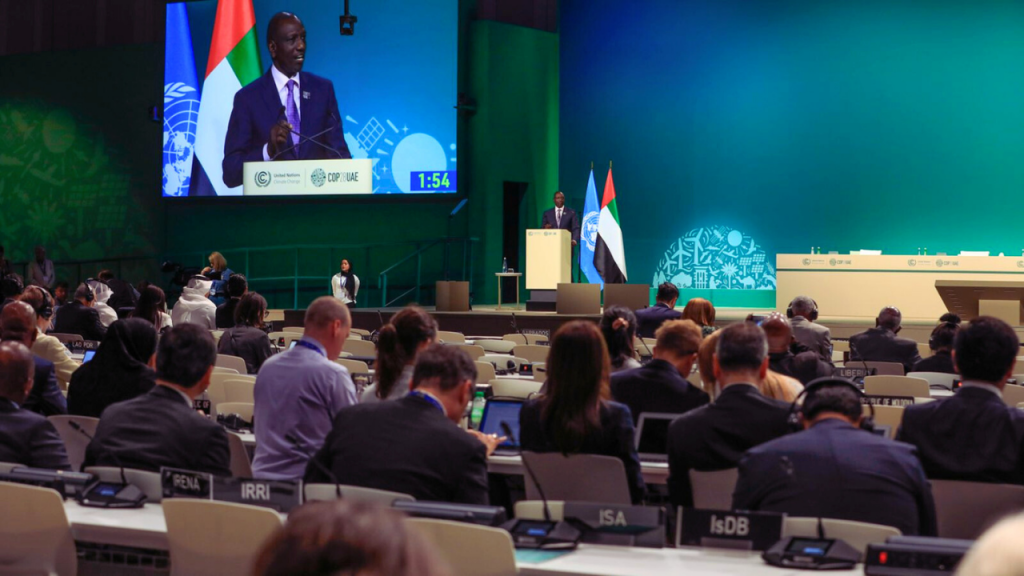
“Today in Africa, we witness increased weather problems, floods, and population growth. These issues are critical to health as they impact determinants like agriculture and nutrition,” said Professor Awa Marie Coll-Seck, the Minister of State to the President of the Republic of Senegal.
“One of the main priorities in addressing climate change is understanding that every goal and activity must not overlook health. The interconnected nature of climate change and health is undeniable. It’s like having a car with a well-equipped engine but forgetting to ensure the health of the driver,” she said.
Professor Coll-Seck, a specialist in infectious diseases and bacteriology-virology and the author of more than 150 scientific publications, highlighted that climate change exacerbates every problem in Africa pointing out that these issues are critical to health, as they impact determinants like agriculture and nutrition.
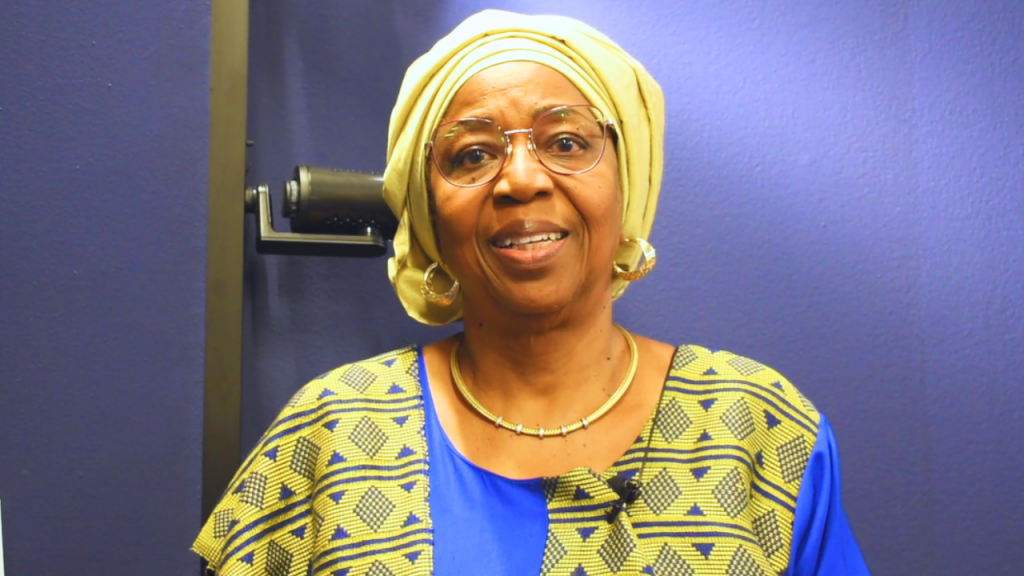
“We have certificates of injuries, diseases, and death, and this is why we need to focus on Africa. Our generation faces unprecedented challenges that could jeopardize all our efforts.” She added.
Khumbize Kandodo Chiponda, the Health Minister of Malawi, backed Professor Coll-Seck’s call, emphasizing the stark impact of climate change on vulnerable communities with severe consequences.
“Africa presents growing evidence illustrating the devastating ways in which climate change affects local communities,” she said. “In the past five years, Malawi, has experienced annual cyclones resulting in death, displacement, and destruction,” she said.
Chiponda said that in the current year alone, Malawi witnessed the displacement of 2 million people due to a cyclone, with approximately 2000 injuries, 600 deaths, and 500 people still missing.
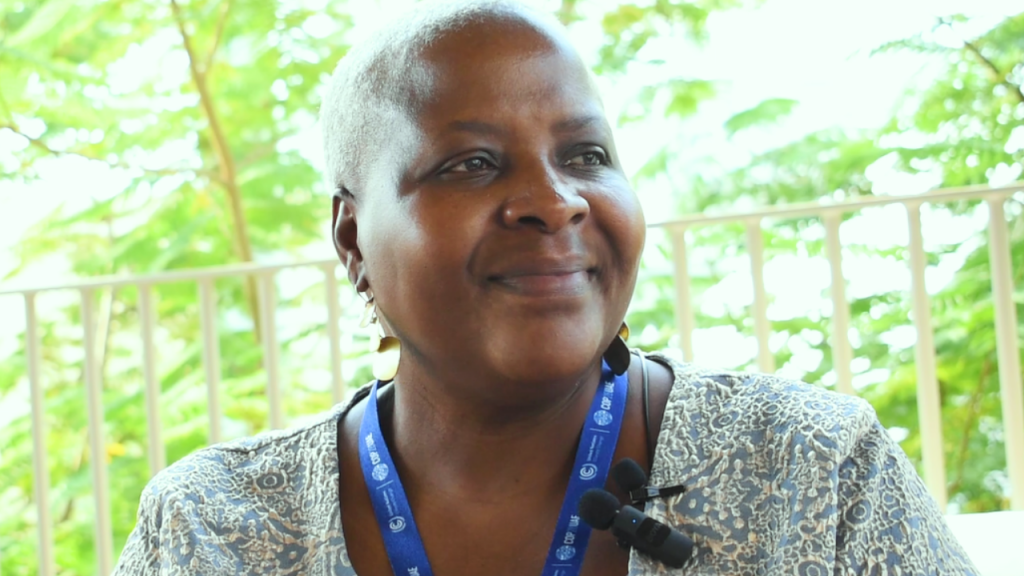
“Beyond the immediate human impact, the country suffered losses in crops, homes, and livelihoods.” She said, adding that, the health sector also took a direct hit, as cyclone-induced damage to infrastructure remains unrepaired, hindering the resumption of health services.
Chiponda noted that beyond cyclone attacks, climate change is contributing to the resurgence of diseases that the region had made significant strides in eradicating.
“Malaria, a disease we had made progress in managing, has resurged due to climate change. Increased cases of cholera are affecting both urban and rural areas. Diseases like pneumonia and various cancers are on the rise, linked to changes in air quality and carbon emissions.” She said.
Malaria Resurgence
“One of the most obvious ways to recognize the climate-driven health crisis is through mosquito-borne diseases,” said Martin Edlund, CEO of Malaria No More.
Edlund said that mosquito-borne diseases are highly climate-sensitive, with even slight changes in temperature, rainfall, and humidity significantly impacting their prevalence.
“Changes in weather patterns, including lengthening rainy seasons and warmer temperatures, are bringing mosquitoes to new latitudes and altitudes, including the highlands in Kenya.” He said.

According to the 2023 World Malaria report recently released by the World Health Organization (WHO), there has been a notable increase in malaria cases globally. The report reveals that in 2022, approximately 249 million people were affected by malaria, surpassing the pre-pandemic figures of 233 million recorded in 2019, marking an increase of 16 million cases.
Aloyce Urassa, Chairperson of the ALMA Youth Advisory Council and a researcher specializing in the intersection of climate change and health, highlighted the impact of a new breed of mosquitoes, specifically anopheles, in East Africa.
“The extreme weather events, such as floods, contribute to the proliferation of mosquitoes by creating additional breeding sites in swampy areas and that is why you find areas that were traditionally less prone to malaria, especially in highland areas, are now experiencing an increase in severe cases.” he said.

Urassa added that Climate Change, poses a challenge for scientists and researchers to track the transmission of malaria.
Climate Finance
Climate finance encompasses funding at various levels—local, national, or international—derived from a range of funding sources, including public, private, and alternative channels. The objective is to provide financial support for both mitigation and adaptation efforts aimed at tackling the challenges posed by climate change.
The Africa policy makers are saying that without timely financial support, the region risks being unprepared for climate shocks, jeopardizing the health and well-being of its citizens.
“This support is crucial in combating the multifaceted challenges posed by climate change,” said Professor Coll-Seck, the Minister of State from Senegal. “We must not forget that a healthy future is linked to a sustainable approach to climate change.”
While noting progress in community-led adaptation projects, she said that their is a need for financial support to extend beyond numerical figures and effectively reach communities.
“It’s important to recognize that climate change and health are inseparable, and our goal should be an intersection of robust action,” said Professor Coll-Seck.
According to Chiponda, the Health Minister of Malawi, “The damages are extensive, and urgent funding is required for infrastructure, resilient systems, and health services.”
She added that there is a need for prompt action, inclusive discussions and the importance of a unified front within the region.
“As health ministers, active participation in climate change discussions is imperative. Malawi has endorsed a shared position within the African Union. It’s vital for African nations to unite in addressing climate change and health challenges, necessitating a collective effort to secure funding and build resilient systems,” Chiponda said.
Edlund the CEO of Malaria No More backed up these concerns, pointing out that “climate financing has doubled to nearly $1.3 trillion, but less than 5% of it goes to health.”
He said that there is an increasing climate-driven pressures on health—hence the pressing requirement for financing, particularly in African countries.
“A success at COP28 Health Day would be achieving 5% of adaptation financing, equivalent to about $5 billion annually for Climate and Health Solutions by 2030. This will significantly contribute to addressing the health challenges posed by climate change.” Edlund said.
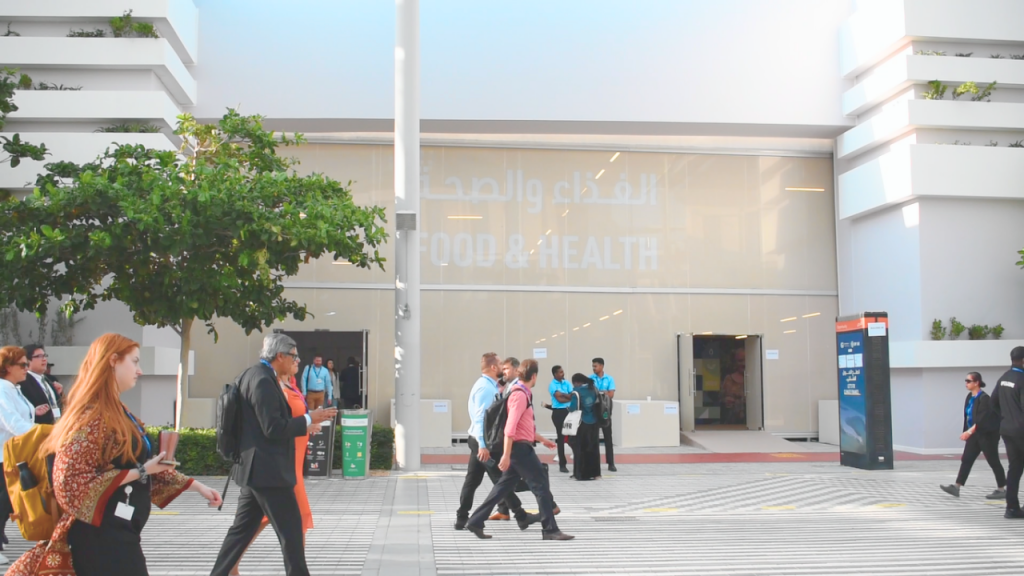
As the first day Health Day at the COP draws near, projected to elicit new commitments to capture the vast health benefits of climate mitigation policies, the front-liners in this report are hoping that the policy makers will acknowledge the urgency of addressing climate-induced health crises, with calls for increased global financing, innovative solutions, and a focus on the immediate health benefits of climate action, often outweighing the costs of interventions.
Hopes for COP28 Health Day
In a significant development earlier today 123 nations affirmed their readiness to back the health declaration. This historic COP28 UAE Declaration, with Kenya as an active participant, places the spotlight on the health impacts of climate change in UN talks for the first time in 28 years.
The voluntary declaration, operating independently of the United Nations Framework Convention on Climate Change (UNFCCC), garnered support through political pledges.
Key commitments include USD 300 million (KES 45.99 billion) from the Global Fund for health system preparation, USD 100 million (KES 15.33 billion) from the Rockefeller Foundation, and an announcement by the UK Government for up to GBP 54 million (KES 10.37 billion).
“If we’re going to make the right decisions at these discussions, that’s going to improve equity and it’s going to improve health around the world,” said Dr. Mary Rice. “We need health to be at the center of every decision about climate action. And if we do that, we’re going to make better decisions that are going to be better for our health and for our future.”
As the world watches, the question remains: Will COP28 be the turning point in prioritizing health in the face of a changing climate?
This story was produced with support from Internews’ Health Journalism Network.



